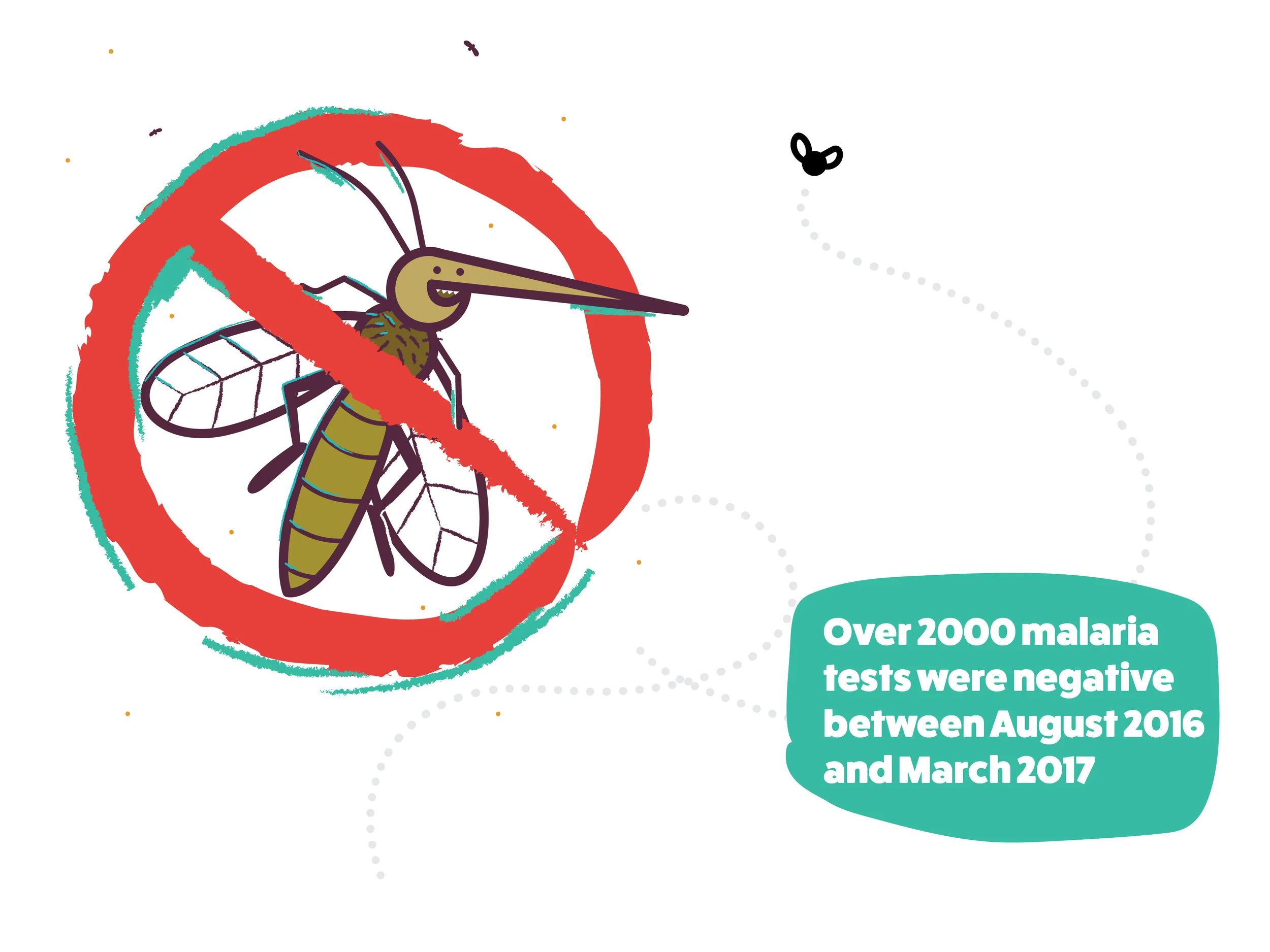Malaria was the single biggest killer for the region, however with increased prevention and control measures we have seen a significant drop in cases.
Mosquitoes are of course a given, but the stagnant water in padi fields makes them hard to avoid when working on farms, which a lot of the Kikavu community do. Since introducing mosquito nets, education programmes, instant diagnosis kits and prompt treatment we managed to eradicate malaria from August 2016 to March 2017 with very few cases since then.
An elderly woman harvesting her rice fields
Dr Julian prescribing treatment to a woman with malaria
A young boy waiting to be seen in the clinic
Mosquito Nets
Sleeping under a mosquito net is vital for protecting against malaria. These nets last 2-3 years and then must be replaced. We are working alongside the government in ensuring all families have enough mosquito nets and keep a general supply to give to families who need them.
Rapid Testing & Treatment
We have promoted the importance of presenting any malarial symptoms to the clinic immediately for rapid testing. By treating malaria early there is a higher chance of fighting it ensuring fast recovery. As soon as treatment begins malaria cannot be spread by another mosquito which helps prevent local outbreaks.
Maternity Care
Treating mothers with malaria is vital to avoid serious complications, the treatment is slightly different for pregnant women as you have to look at the safest drug for the unborn child, ensuring both mother and baby recover well.










